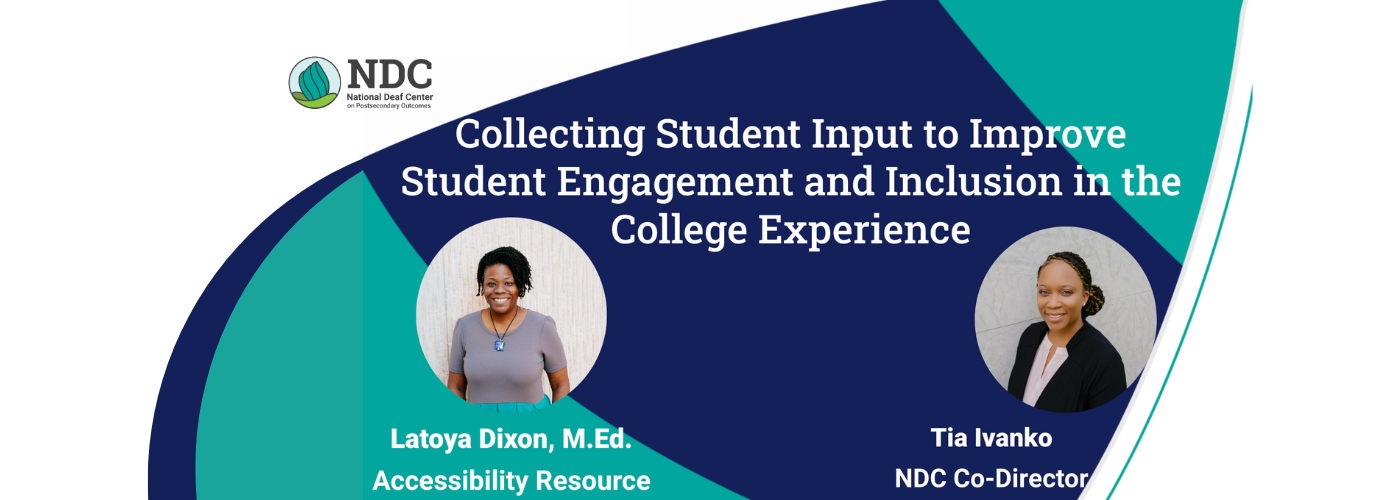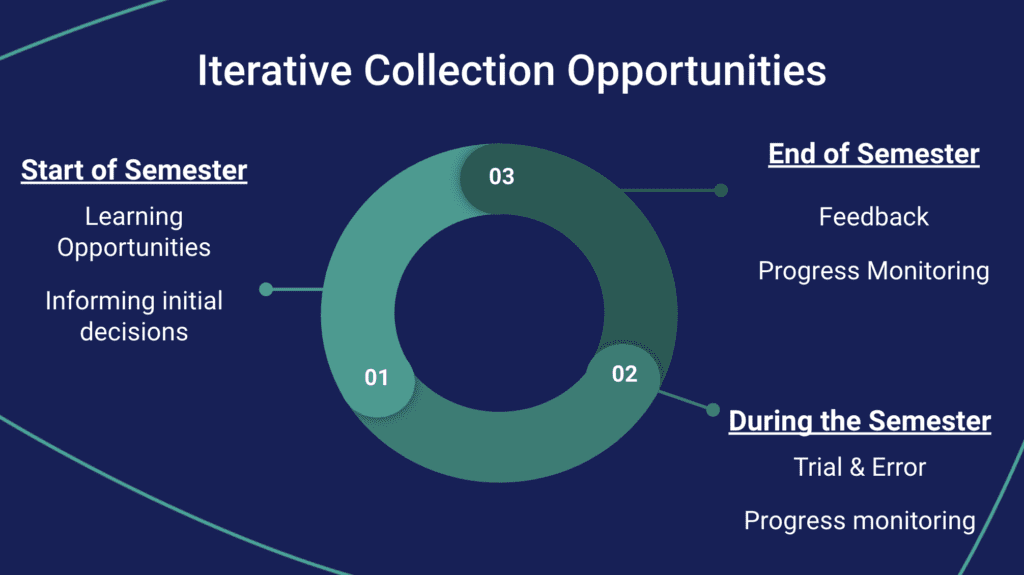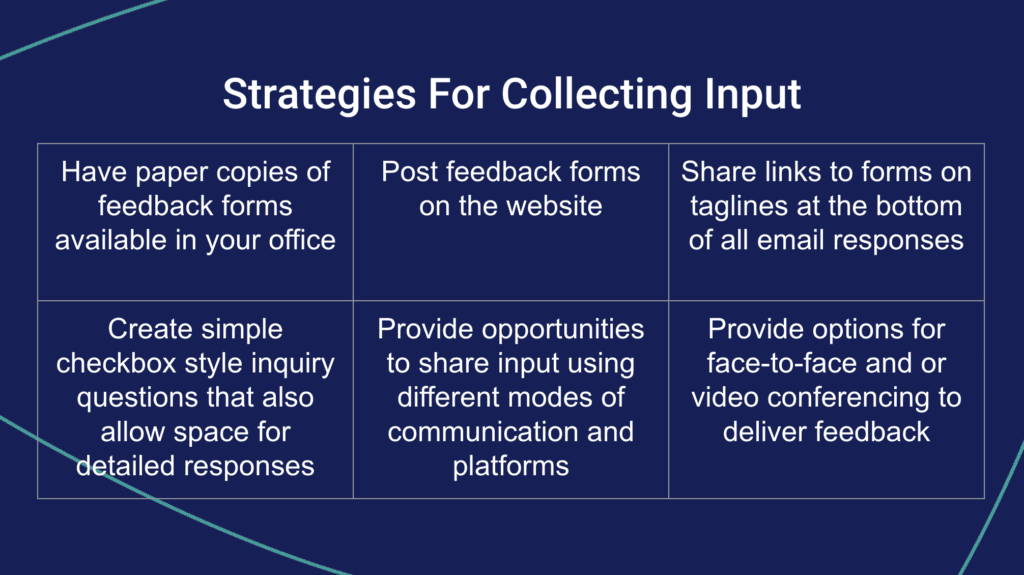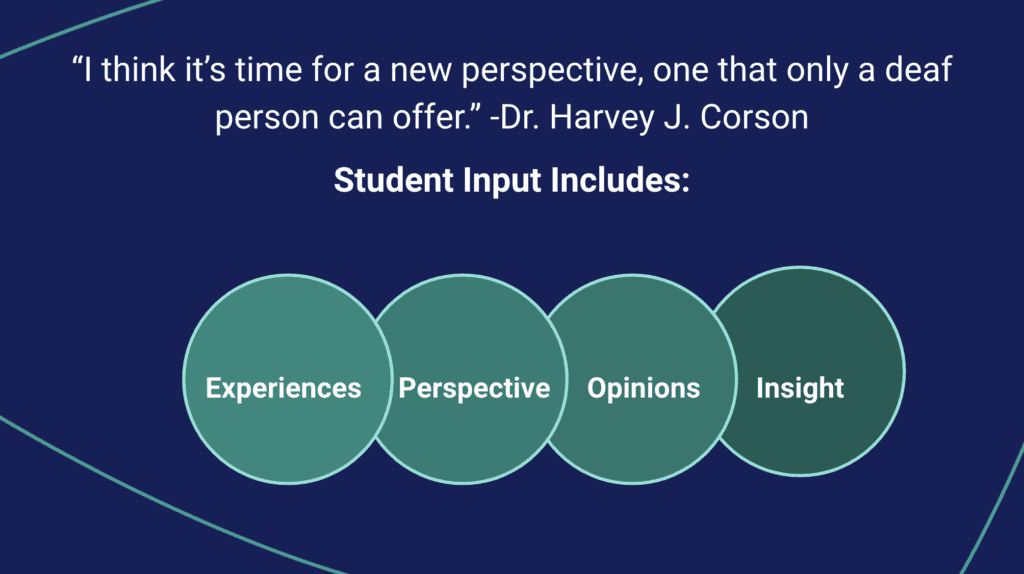In our recent webinar, Collecting Student Input to Improve Engagement, the spotlight was on revolutionizing the educational landscape for deaf students. Since existing data falls short of providing a holistic understanding of deaf student experiences at various educational institutions, collecting input provides a clearer understanding of student experiences and can highlight effective strategies. The session also urged educational institutions to take proactive steps towards understanding and enhancing the experiences of deaf students.
Why Gather Student Input?
A 2019 survey revealed that a staggering 52% of offices had no formal feedback collection process, reflecting the reliance on a ‘no news is good news’ mindset on many campuses. Institutions need to recognize the impact of sporadic feedback and embrace a more comprehensive approach.
The 2022-2023 DPAIS results underscored the need for change. While disability services do not always collect feedback (only 33% reported), data shows that when offices do receive information, they are responsive. 63% of offices used student feedback to improve services (Accessibility Report, 2022). It is key to position student input as a valuable source of data to inform decisions and enhance services through evidence-based practices.
Cultivate Proactive Engagement
Actively seek student input to gain a holistic understanding of their experiences. Encourage a shift from occasional feedback to a continuous flow, providing insights into the multifaceted daily lives of students.
Institutionalize Evidence-Based Practices
Develop a culture that values data-driven insights, ensuring accountability and continuous improvement. Recognize the invaluable role student feedback plays in shaping a more accessible and equitable educational experience.
Foster Trust and Authenticity
Establish genuine relationships with students and build trust through transparent communication about the purpose of data collection. Recognize the delicate power dynamics at play and position trust and authenticity as non-negotiable elements of the process.
Check Out These Clips from the Webinar!
Overcome Challenges and Embracing Opportunities for Growth
It’s not just about collecting data; it’s about unlocking a wealth of information that can drive positive change. From identifying patterns and shared experiences to fostering innovation, the benefits are endless. This session delved into practical strategies, urging institutions to move beyond traditional surveys.
There was also recognition of challenges encountered while collecting input from students, including time constraints and low response rates, framing them as hurdles worth overcoming for the invaluable payoff of enriched data. Acknowledge the hurdles while seeing them as opportunities for growth, creativity, and trust-building. Emphasize the importance of ongoing, consistent data collection to create a dynamic feedback loop.
The webinar concluded with a call for a systemic approach, emphasizing the collective responsibility for data collection. Encourage all departments to actively engage in ongoing, inclusive practices that prioritize the diverse needs of deaf students.
The presenters advocated not just for understanding the experiences of deaf students but for transformative action. By proactively seeking and leveraging student input, institutions can pave the way for an educational environment that truly embraces accessibility and continuous improvement. It’s time to turn insights into action and empower deaf students to thrive in their educational journey.
For more information about collecting student input or evaluating services, visit our Student Feedback page.












